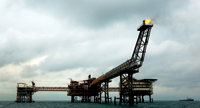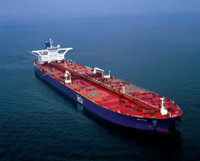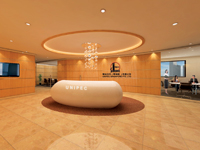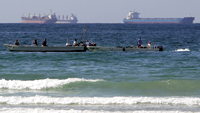
 The pipeline will inject 750 mmcfd of gas into Pakistan’s system
The pipeline will inject 750 mmcfd of gas into Pakistan’s system
PAKISTAN and Iran have decided to establish a joint working group to evolve a strategy on how the two countries can go ahead with the Iran-Pakistan (IP) gas pipeline project despite US-imposed economic sanctions against Iran on account of its purported nuclear ambitions, says a senior official at the Ministry of Petroleum and Natural Resources.
At the end of a two-day talks on the IP gas pipeline project, the two sides decided to form a joint working group with experts from technical, legal, financial and commercial sectors to work out the strategy to implement the project. The Iranian team was headed by Dr Ahmad Khalidi, the deputy minister for internal affairs and had the minister for petroleum as the other member; whereas Abid Saeed, Additional Secretary for Ministry of Petroleum and Natural Resources led the Pakistani side.
Iran, which has already extended a credit line of $500 million to Pakistan besides offering to provide pipeline, gas compressors and other related equipment to be used in the laying down of the line in Pakistan’s territory, is very worried over Pakistan’s hesitation in initiating the project.
Islamabad was quick to assure the Iranians that it has not lost interest in the project and just wants Russia and China to join the project since the venture would then have broad-based ownership. Further, argued Pakistan, it would then be easier for Islamabad to justify the decision in the face of economic sanctions imposed by the US, the European Union and Japan.
To a question about Russia’s response in this regard, an official says that Pakistan has already sent a draft agreement to Russia. However, the official says: “Russia’s response is not up to the mark.” Russia wants the contract for the construction of the project and wants Islamabad to waive Public Procurement Regulatory Authority (PPRA) rules to this end, he says.
The 785-km gas pipeline from MP 250, a point at the Pak-Iran border, to Nawabshah is scheduled to be commissioned by December 2014 and this project will inject 750 mmcfd gas into Pakistan’s system. Pakistan is currently facing a huge gas deficit of over 2 billion cubic feet per day as its production stands at 4.2 billion cubic feet. The import of gas from Iran will help ease the gas deficit in the country to a reasonable level.
Interestingly, however, Ahmer Bilal Soofi, an eminent international law expert, is of the view that Pakistan will not be able to realise this project. “Under the United Nations (UN) sanctions against Iran, the income from any commercial deal with any country cannot be used for the up-gradation of Iran’s nuclear programme. Since the UN will determine whether the income of the deal is being used for the nuclear programme of Iran, this project is a non-starter,” says Soofi. “The project is not suffering because of our faults; rather, the project is not going ahead because of Iran’s nuclear programme, due to which no one is ready to fund the project.”
Prior to his visit to Iran for the two-day talks, Dr Asim Husain, Federal Minister for Petroleum and Natural Resources, had said: “Yes, this is a do or die mission to Iran.”During the talks, Pakistan and Iran also discussed other issues of mutual interest, particularly the energy sector. The Iranian side expressed its interest in investing in the exploration and petroleum (E&P) sector including investments in upstream and midstream projects. The Iranian side also invited Pakistani companies to invest in the E&P sector in Iran.























































































